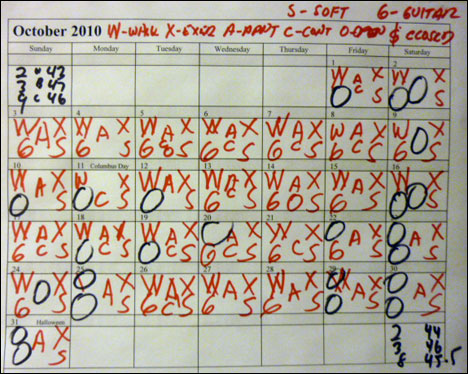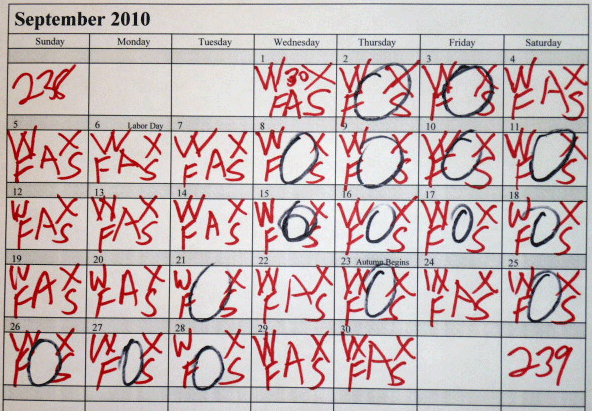
To be honest, I would like to hear from other folks on what they’re doing about their goals. I will tell you from my own experience that perfect performance is elusive, but if you make the effort to track your efforts, it’s a lot easier to stay on track — and to get back on track if you stray. I may write a MySQL app with a PHP front-end, just to make record-keeping that much easier.
In October, I tracked a lot of stuff, so much that I ended up not tracking some things, so much was there to keep track of. In the photo, my goals are documented at the top:
S – Write software or work on web-based marketing for the business.
G – Play the guitar for at least half an hour.
W – Walk with Cathleen and the dogs for half an hour.
X – Work out for half and hour.
A – Attend an appointment with a real estate buyer or seller.
C – Write a real estate contract.
O – Open an escrow.
$ – Close an escrow.
It’s at the end of that list that I fell apart. I had a ton of appointments, and I wrote a lot of contracts. These are not hugely meaningful: It takes me a lot of contracts, right now, to get to one closed escrow. I actually closed two deals — only two — but one of them was a short sale that I held together against all odds for nine months. That’s not a proud accomplishment, financially, but it speaks volumes about improvements I’ve been trying to make in my sales skills. I opened four escrows, which is the threshold of a pace I’d like to improve upon. Altogether, it was a pretty good month for real estate work.
Software was no problem at all — most days quite a bit more than 30 minutes. Much of this was the server swaps we went through, but I wrote a ton of new software, some of which I’ve discussed in recent posts. I have quite a few more tricks up my sleeve, plus a lot of my recent work Read more

